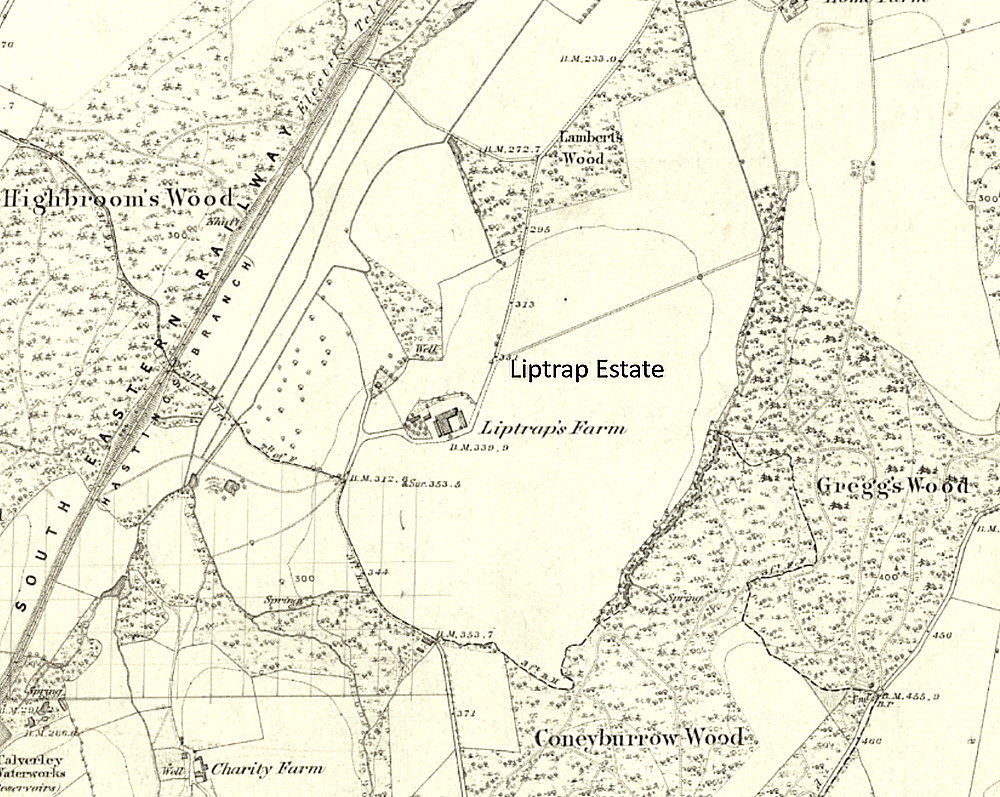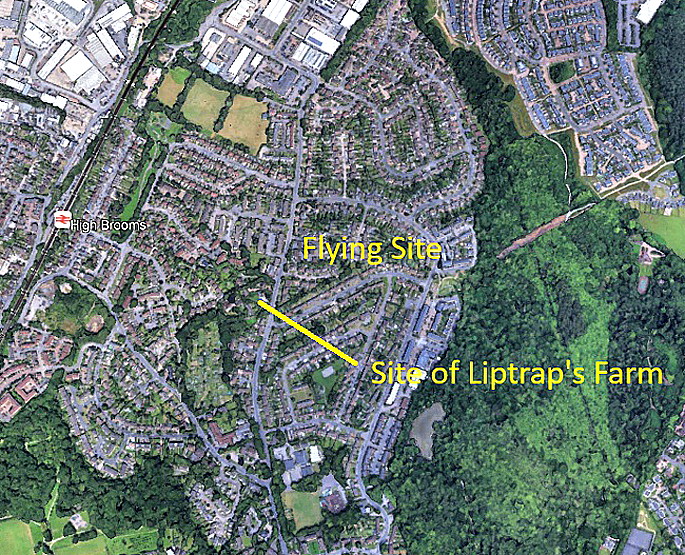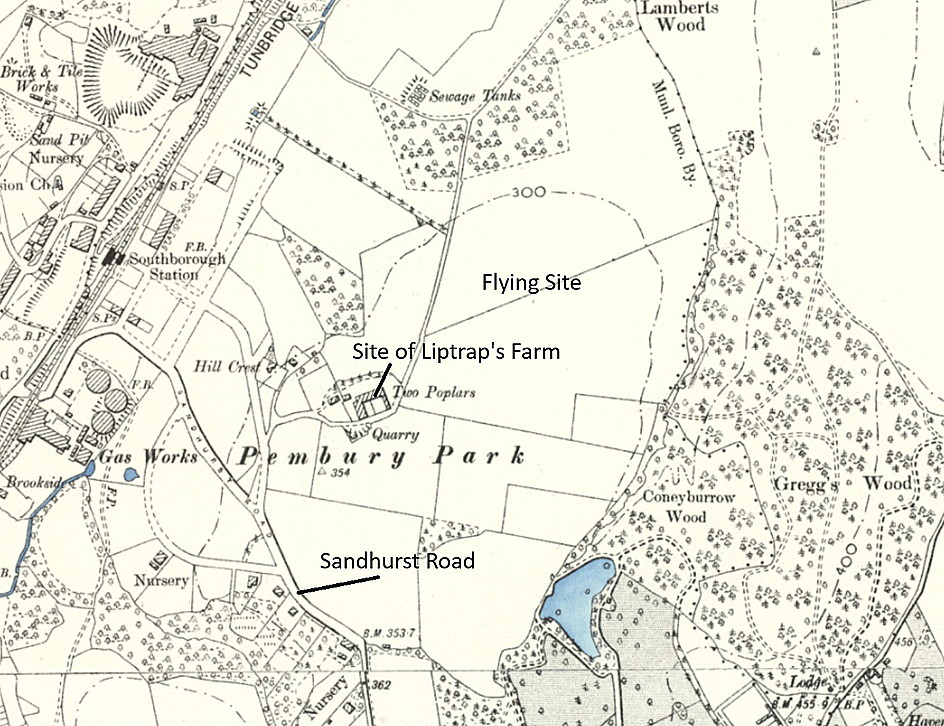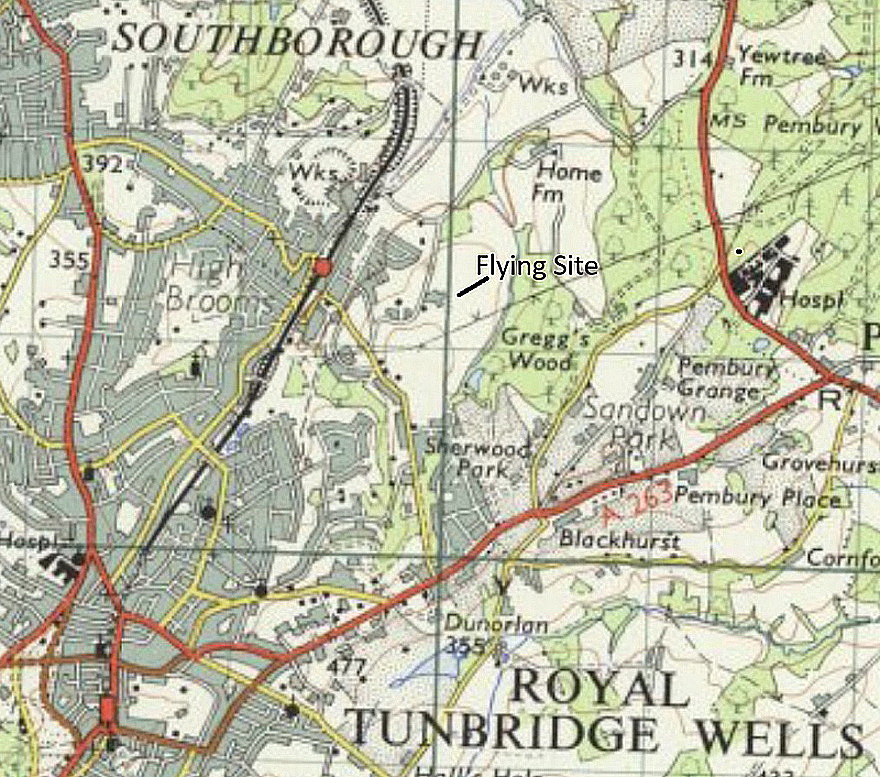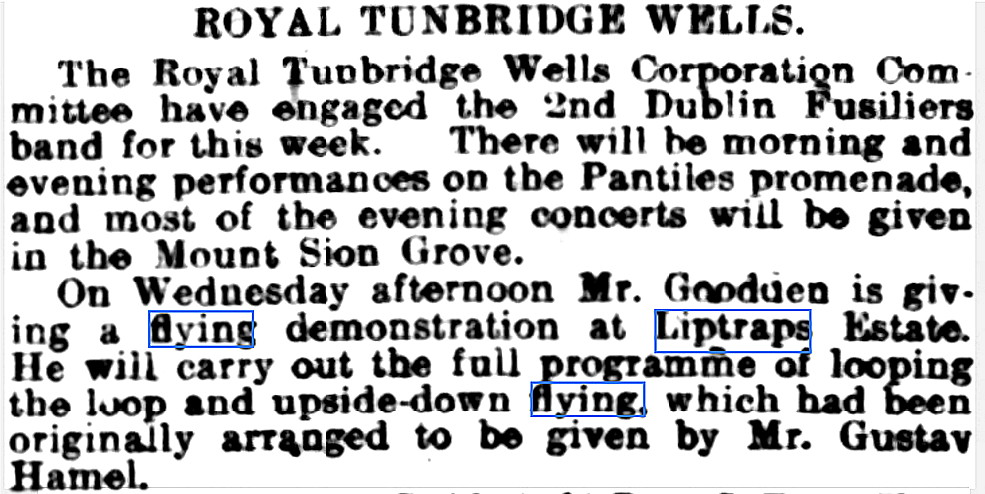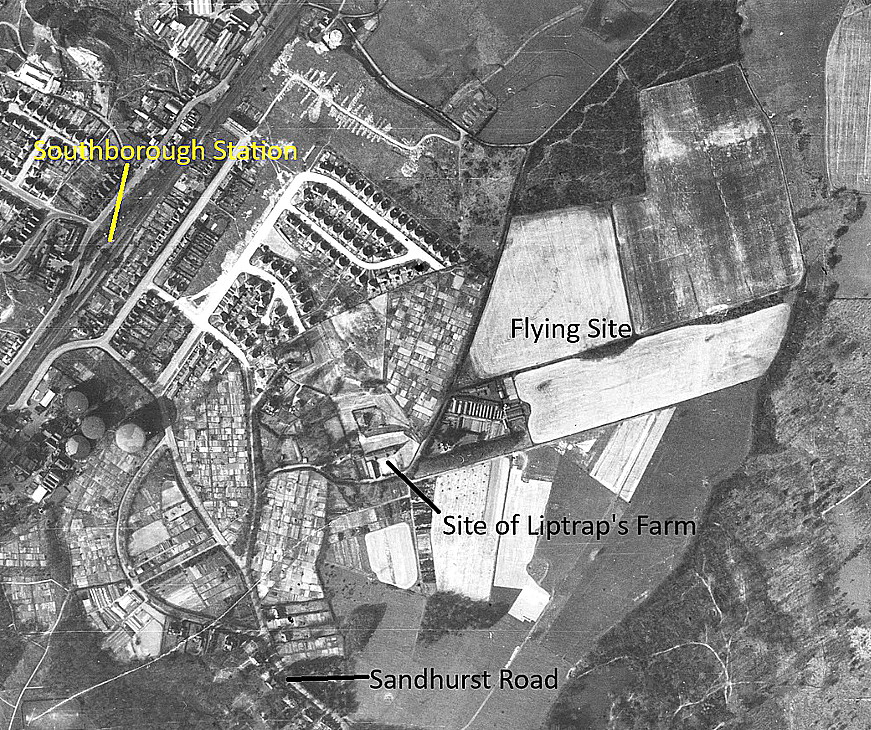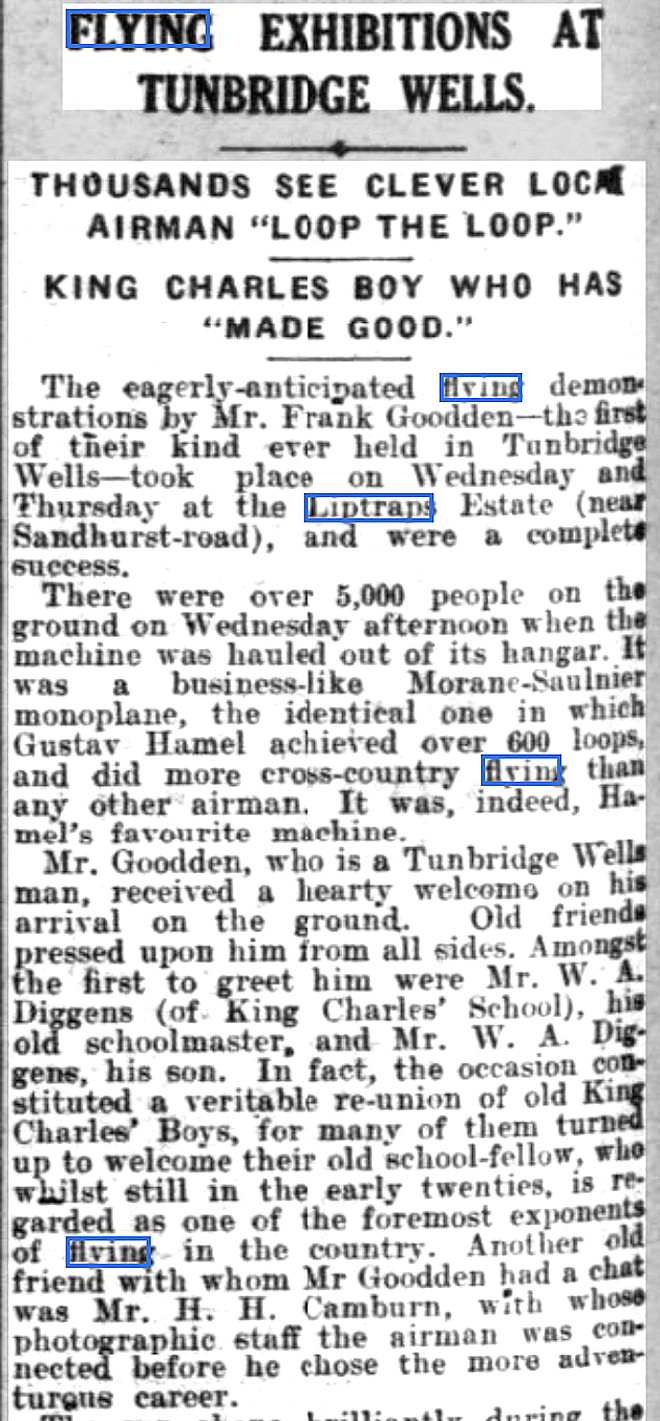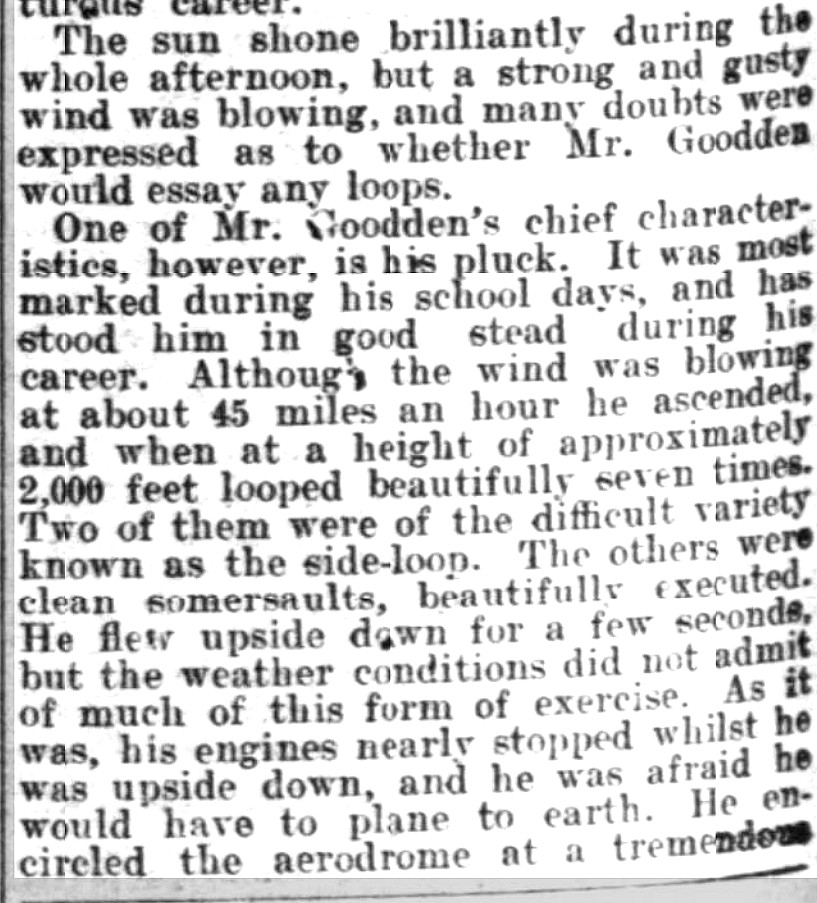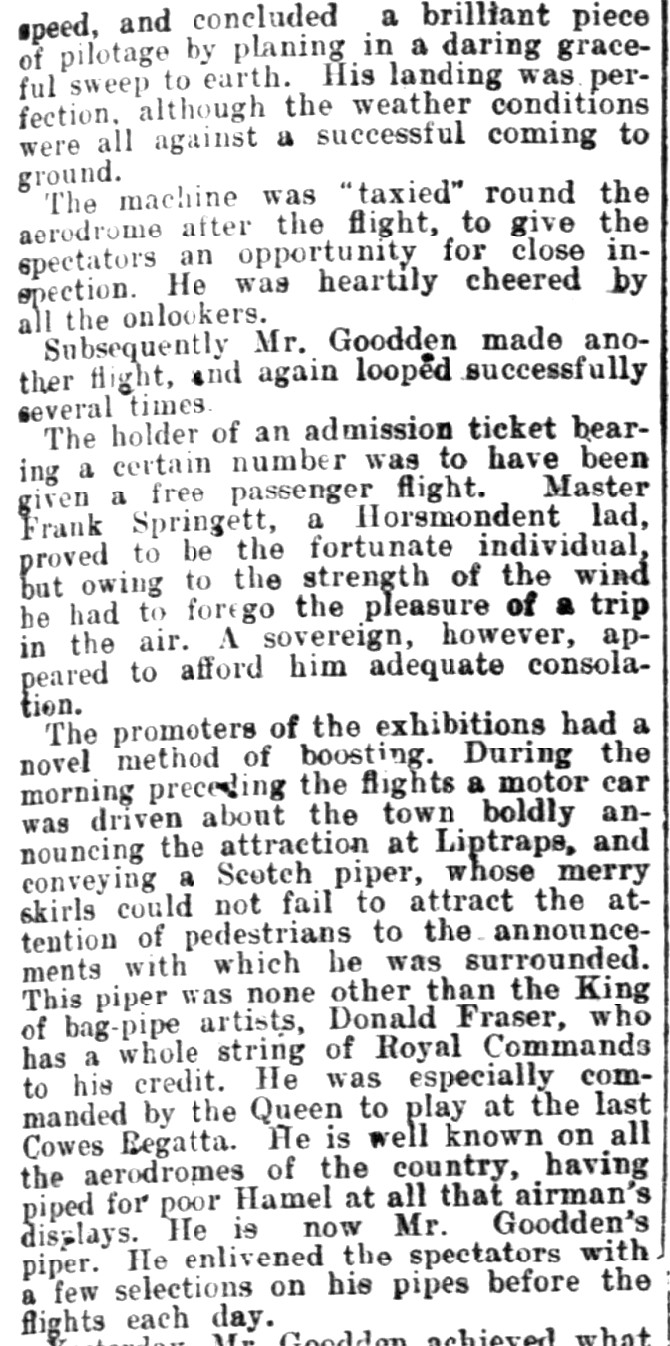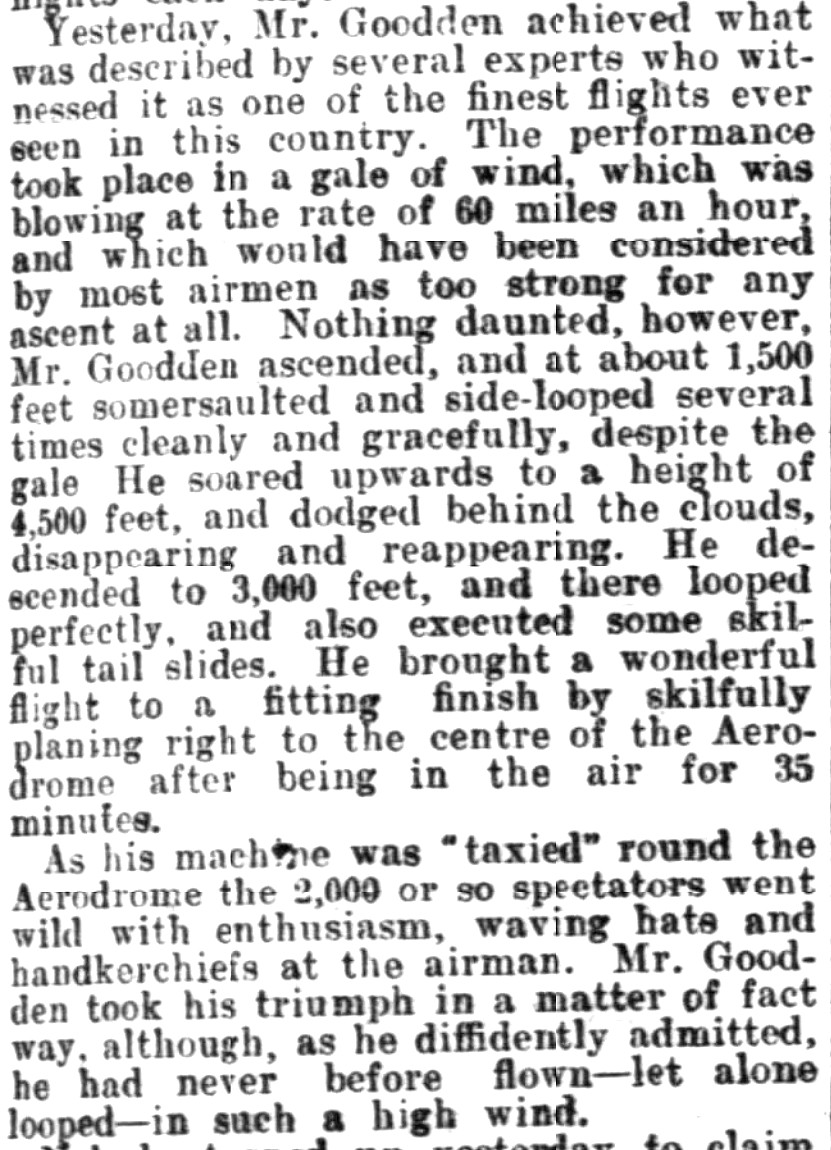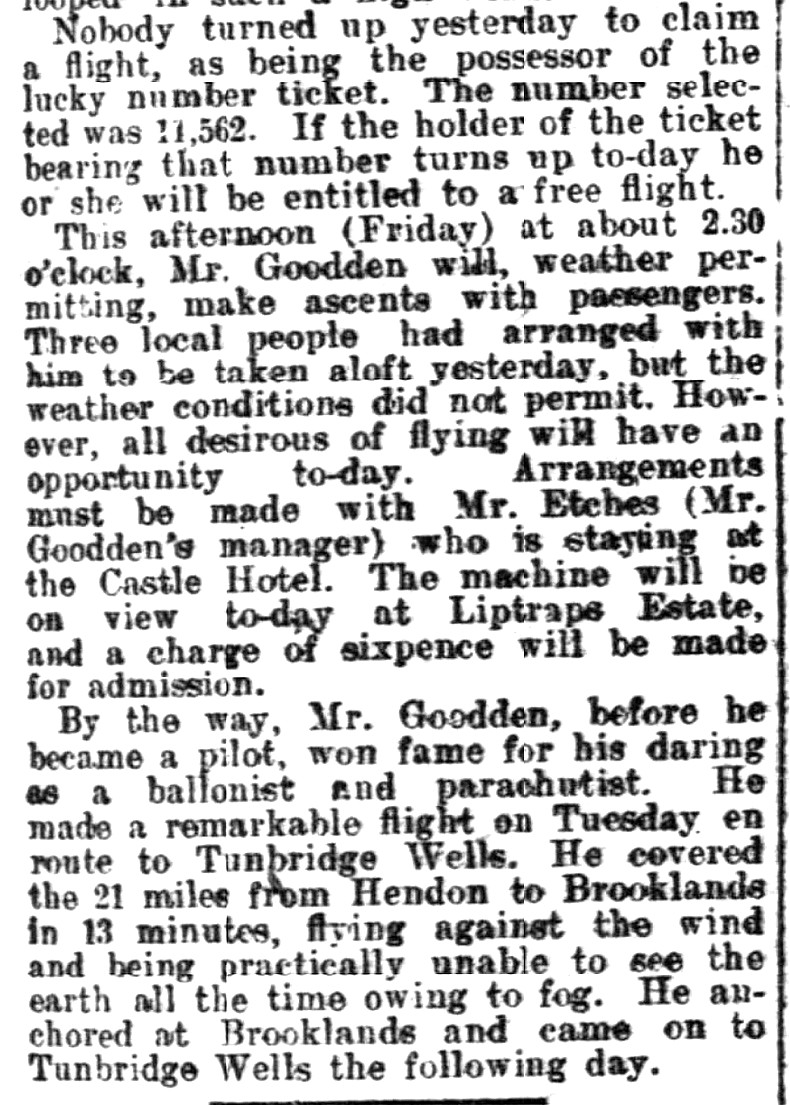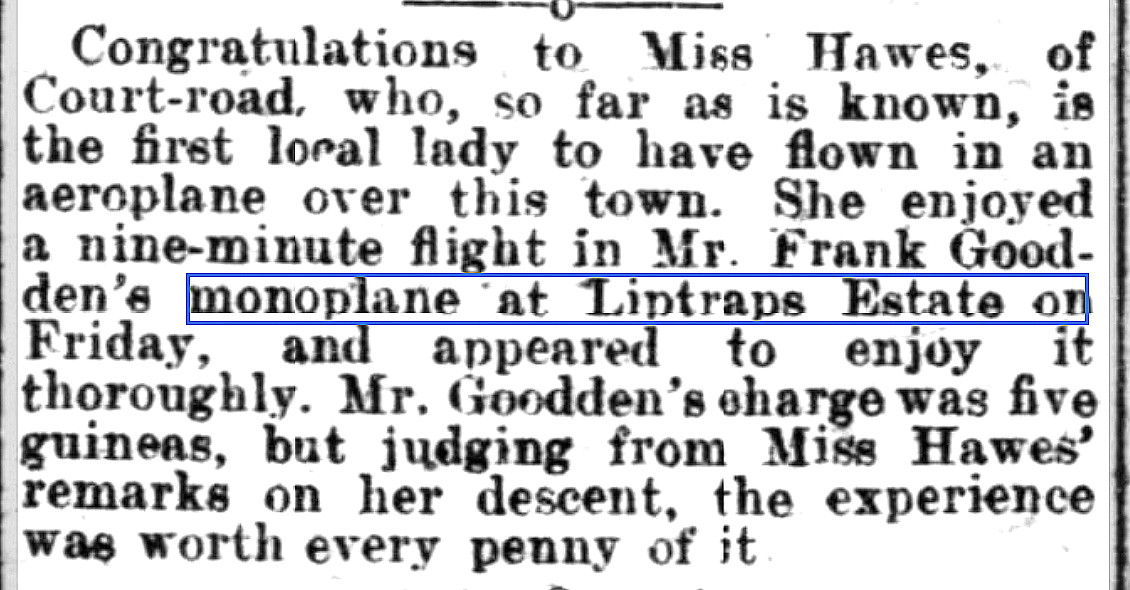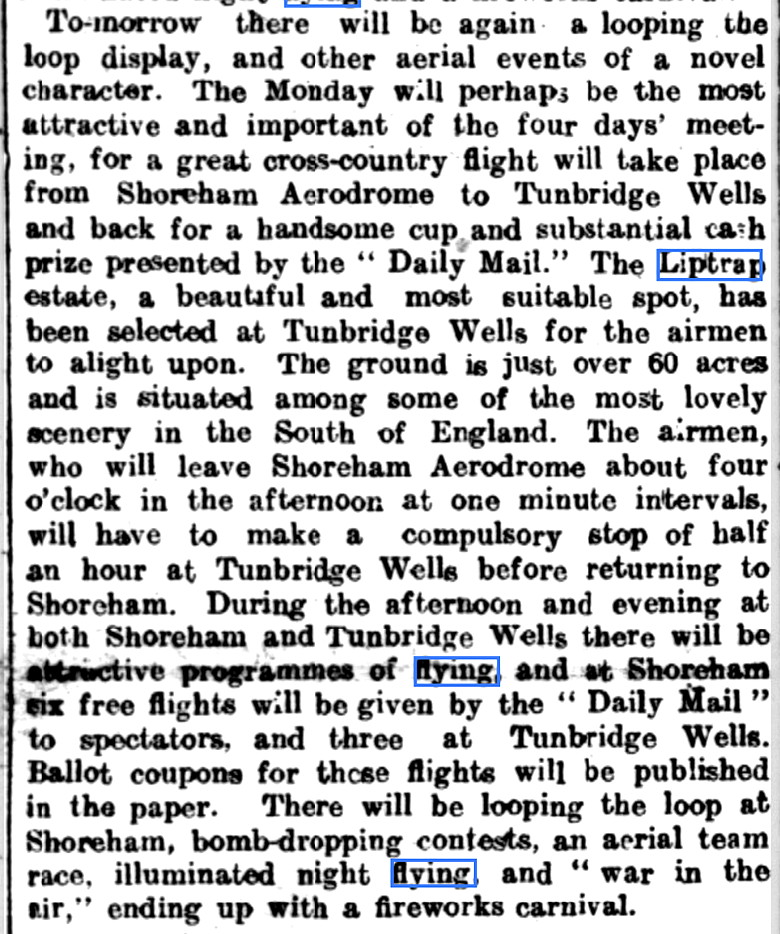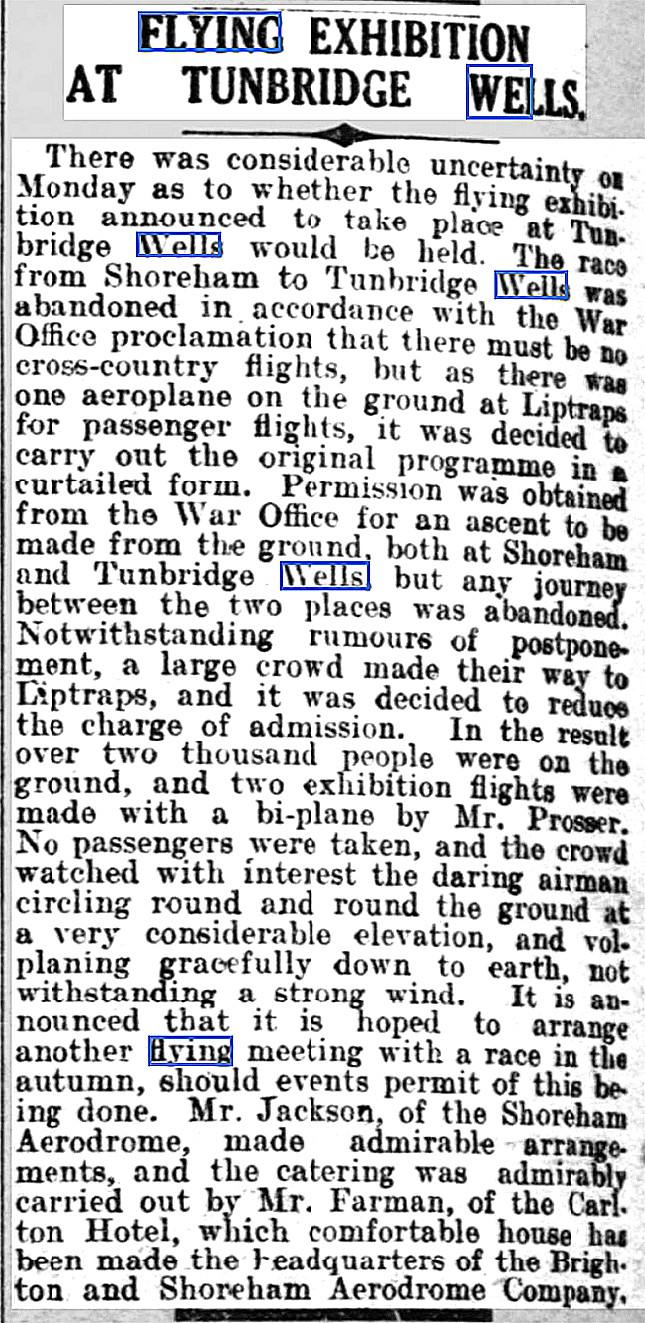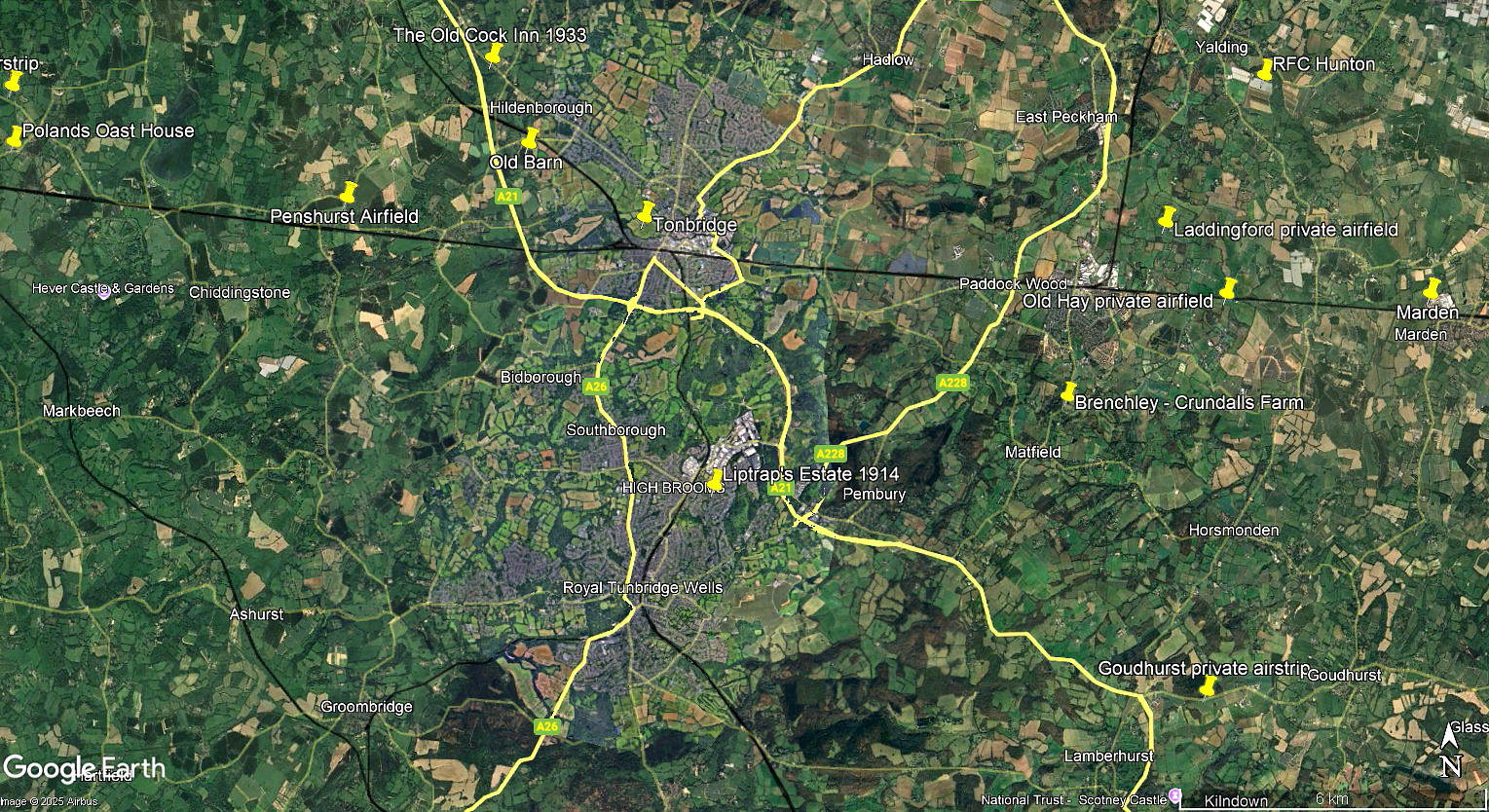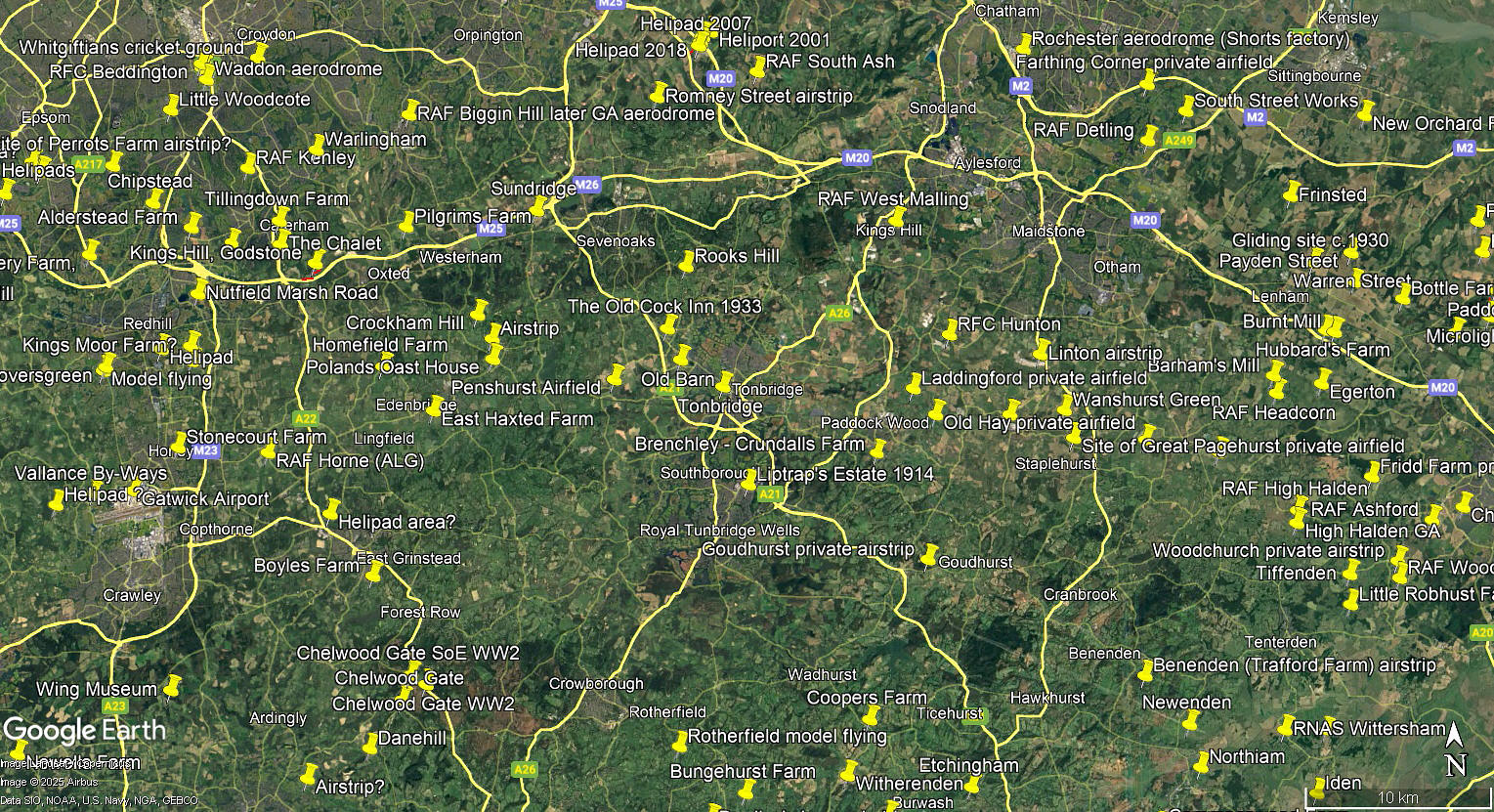Liptraps Estate
LIPTRAP'S ESTATE: Temporary aerodrome (Later named as Pembry Park)
Location: Just E of Southborough Station, (later renamed High Brooms), roughly 1nm NE of Tunbridge Wells town centre
Period of operation: 10th to 12th June 1914, then 3rd August
NOTE: This venue appears to have been first used by Frank Goodden during June 1914. The original plans were for the displays to be conducted by the then 'super-star' aviator Gustav Hamel, but he had sadly vanished over the English Channel, ferrying a new aeroplane over from France. Frank Goodden was a good choice, especially as he was a local 'lad'.
However, the war clouds were then gathering apace in Europe and the British government, who had been taking steps for at least two or three years to be ready for this eventuality, had imposed a ban on civil flying from the 1st August, although the British Empire did not declare war on the German Empire until the 4th August. This said, the die was cast when the Austro-Hungarian Empire declared war on Serbia on the 28th July.
Meanwhile this venue was already gaining some interest in aviation circles as Edwin T Prosser had planned a display on the 3rd August, and it was the destination for an air race from SHOREHAM on the 4th August. This was ordered to be cancelled, but Prosser had gained permission to go ahead from the War Office.
A MICHAEL T HOLDER GALLERY
For the following items we have Mike Holder, a long term friend of this 'Guide', to thank for both discovering and then researching what is available to illustrate this venue.
The Notice was placed in the London Evening Standard on the 8th June 1914.
WHAT THE PRESS HAD TO SAY
This article, in five parts, was published in the Kent & Sussex Courier on the 12th June 1914.
The short article was published, also in the Kent & Sussex Courier, but on the 19th June. Article Two was published in the Brighton Gazette on the 1st August 1914. (This event being cancelled).
Article Three: Here again, another article appearing in the Kent & Sussex Courier, but on the 7th August 1914.
These two pictures are from my Google Earth © derived database. Please note that only a selection of the flying sites in this 'Guide' have been 'pinned' onto this database.
NOTES: There are two aspects illustrated in the items above. The first being how many old flying sites, especially after WW2, have been subsumed beneath urban developments. Mostly housing estates needless to say, but secondly industrial/trading estates. This can give the false impression that England has become mostly densely populated. I keep hearing this in the media etc. This is utter garbage, mostly due to very poor planning allowing ribbon development alongside major roads. When flying passengers who had never been in a light aircraft before, from WYCOMBE AIR PARK and later ELSTREE, after landing it was commonly remarked - "Where have all the houses gone?" If you want to see a densely populated country, take a flight in a light aircraft over much of Belgium and The Netherlands. Also, apart from flying over them, having been both driving across, (and sometimes working), in these two countries for over half a century, my impression is that, overall, they now have a much higher standard of life.
The second aspect, which I certainly did not expect since starting this project just over a quarter of a century ago, (in 2025), was that before WW1 when two seater aeroplanes became available, allowing aviators to augment their flying costs by charging passengers to fly, it was invariably more women than men very keen on going flying, queueing up. This period in time being when the women's suffrage movement was gaining much support and publicity. Even so, it wasn't until 1918 that women got limited means to vote, and it was not until 1928 that it became equalised.
We'd love to hear from you, so please scroll down to leave a comment!
Leave a comment ...
Copyright (c) UK Airfield Guide















